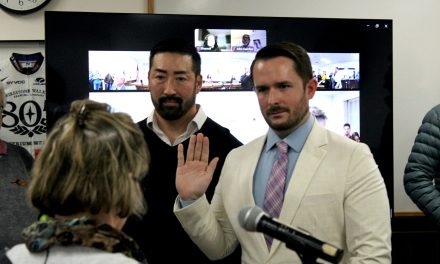From subscription cancellations to enhanced workplace protections and student mental health support
As of July 1, several new California laws are now in effect, ushering in changes that touch on everything from consumer rights and student mental health to workplace protections and gas taxes.
Easier Subscription Cancellations
Consumers will now find it simpler to cancel subscription services thanks to Assembly Bill 2863, which requires businesses to offer the same cancellation method used to initiate the subscription. The law aims to reduce frustration over hard-to-navigate cancellation systems, a common complaint among Californians.
Short-Term Rental Fee Transparency
For those booking vacation homes, AB 2202 now mandates that platforms like Airbnb disclose all cleaning fees and penalties before a reservation is made. Hosts must also clearly list cleaning tasks expected of guests, ensuring greater transparency and fewer surprise charges.
Mental Health Resources for Students
Under Senate Bill 1063, all public schools serving grades 7 through 12 must print the 988 Suicide & Crisis Lifeline and a QR code linking to county-specific mental health resources on student ID cards. This change is part of a broader effort to support youth mental health and prevent suicide.
CARE Act Transparency
New updates to the CARE Act, which provides court-ordered treatment for individuals struggling with mental health, require courts to keep petitioners informed about the individual’s treatment progress. The law, originally passed in 2022, seeks to provide compassionate care while maintaining accountability and oversight.
Retail Theft and Online Marketplaces
Cracking down on retail theft, AB 2943 and SB 905 increase penalties for crimes like vehicle break-ins when items are intended for resale. Additionally, online marketplaces must now verify the identity of third-party sellers and report suspicious activity to law enforcement, a response to growing concerns over stolen goods being sold online.
Bar Safety Enhancements
Bars across the state must now offer drink lids upon request and post signage warning patrons of drink spiking. Signs must read:
“Don’t get roofied! Drink lids and drink spiking drug test kits available here. Ask a staff member for details.”
New Protections for Domestic Workers
With the passage of SB 1350, domestic workers — such as nannies and house cleaners hired through agencies — are now covered under Cal/OSHA workplace protections. However, the law does not apply to individuals who hire household help directly for personal use.
Gas and Cannabis Tax Adjustments
The state’s gas tax has increased from 59.6 cents to 61.2 cents per gallon, part of an annual inflation adjustment. Cannabis taxes have also been adjusted, though specifics vary by locality.
Minimum Wage Hikes in Select Cities
Several California cities, including Los Angeles, have raised their minimum wage as of July 1. Local rates now exceed the state minimum, which remains at $16 per hour, depending on the size of the business.
Other Key Changes:
- Pet Insurance Transparency: Insurers must now explain premium increases and reductions in coverage to policyholders.
- Fertility Treatment Coverage: Most insurance plans are now required to cover fertility treatments, including in vitro fertilization (IVF).
- Food Delivery ID Requirements: Delivery platforms must provide customers with a photo and the first name of their delivery person.
- Bounty Hunter Licensing: AB 2043 mandates that all bail fugitive recovery agents — commonly known as bounty hunters — must be licensed in California.
For full details on how these laws may impact you, visit the California Legislature’s website or contact your local city or county government.







